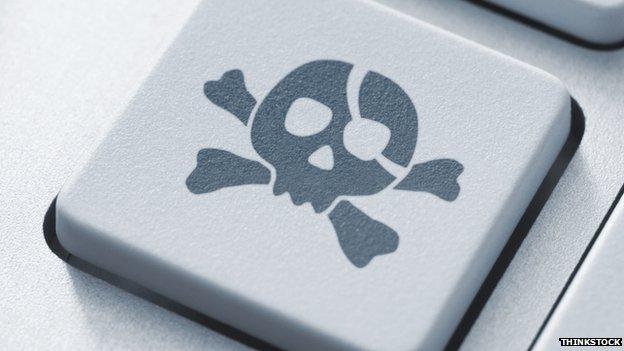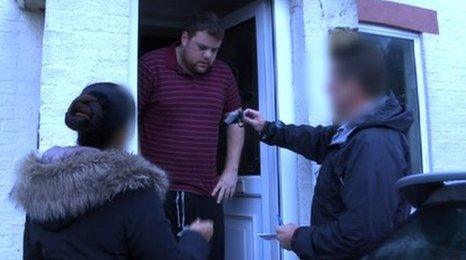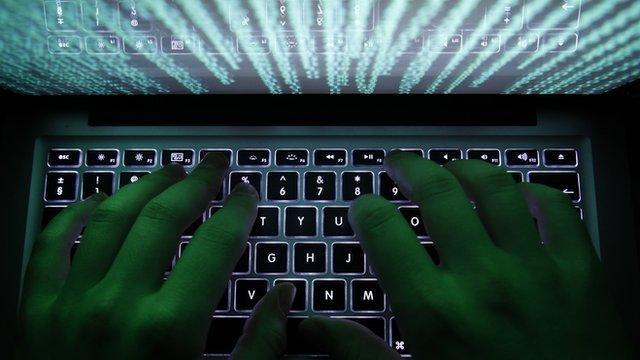Online pirates could face 10 years in jail
- Published

The film and music industry have been lobbying for tougher penalties for online piracy
Online pirates could face jail terms of up to 10 years under plans being considered by the government.
Online copyright infringement currently carries a maximum penalty of two years' imprisonment.
Ministers have launched a consultation, external on increasing it to 10 years - bringing it into line with copyright infringement of physical goods.
The government said tougher sentences would act as a "significant deterrent".

Analysis

By Dave Lee, BBC technology reporter
Groups that represent the country's creative industry - particularly film and music - have been lobbying hard for this for some time.
They argue that a couple of years in jail just isn't a sufficient deterrent to prevent online piracy, and that the law is well out of date.
The proposed measures are mainly targeted at the distributors of pirated content - the people creating copies of movies, sometimes before release, and uploading them to be downloaded by thousands upon thousands.
It's not, the police are clear to point out, aimed at small-time downloaders - although there are other ways and means to prevent that too.
The consultation phase will likely turn heated. Internet rights groups will question the influence Hollywood and the music industry has over the day-to-day operations of the police - after all, industry bodies, funded by top studios and record labels, have paid for staff to work in police stations with the sole brief of investigating copyright crime.
They'll also say the way to "solve" online piracy is to offer affordable, flexible ways to consume new film and music - not jail terms.
Netflix, Spotify and others are evidence this is happening, the industry groups say. They'll argue that no legal service, however cheap, will ever tempt those who simply don't want to pay for their entertainment.

'Digital world'
Intellectual Property Minister Baroness Neville-Rolfe said: "The government takes copyright crime extremely seriously - it hurts businesses, consumers and the wider economy both on and offline.
"Our creative industries are worth more than £7 billion to the UK economy and it's important to protect them from online criminal enterprises.
"By toughening penalties for commercial-scale online offending we are offering greater protections to businesses and sending a clear message to deter criminals."
Detective Chief Inspector Peter Ratcliffe, head of the Police Intellectual Property Crime Unit, said: "Online or offline, intellectual property theft is a crime.
"With advances in technology and the popularity of the internet, more and more criminals are turning to online criminality and so it is imperative that our prosecution system reflects our moves to a more digital world."
The consultation follows calls from the creative industries for more action over copyright offences.
- Published14 October 2013

- Published14 October 2013

- Published9 May 2014
